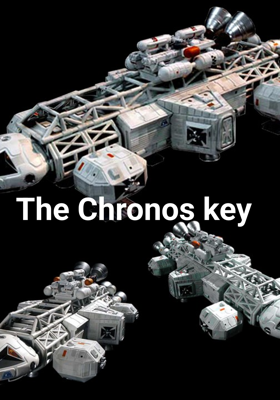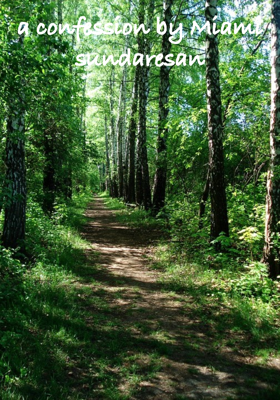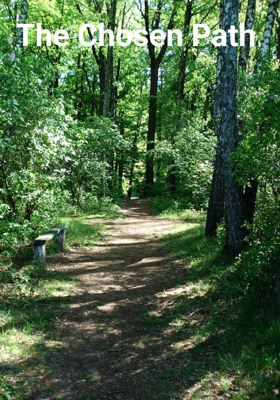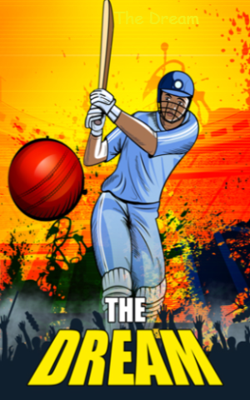The Dopamine Trap...
The Dopamine Trap...


The Dopamine Trap...
The evening air hung heavy as the wind whispered through the city streets. Priya sat at her desk, her eyes drifting over the framed certificates and trophies that lined the walls. Her laptop, still open, displayed the latest work achievement—a success she had been chasing for months. Yet, despite all the accolades, there was an emptiness inside her that she couldn’t explain. Every victory brought a momentary high, but it always faded, leaving her with a gnawing sense of dissatisfaction.
Dev, her closest friend, leaned casually against the doorframe, watching her. He’d known Priya since childhood, and though she seemed to have it all—career, accomplishments, recognition—he sensed the weariness behind her outward success.
"Still running after that next goal?" he asked gently, his voice cutting through the silence.
Priya glanced at him, sighing. "You know me. Always something more to chase."
"But why?" Dev’s eyes softened with concern. "What are you really chasing?"
Priya leaned back in her chair, staring at the ceiling as if searching for an answer. "I don’t know. I guess it’s just how things are, right? You achieve something, it feels good for a bit, and then it’s gone. So you set a new goal."
Dev walked over and sat across from her. His face was thoughtful, but his tone was probing. "You ever wonder why it feels good at first, but then disappears?"
"It’s dopamine, isn’t it?" Priya said. "The brain’s reward system. Achieve something, get a little dopamine hit. Then you have to move on to the next thing."
"Exactly," Dev replied. "But that’s the trick. It’s an ancient survival mechanism, hardwired into us, pushing us to always strive for more. It made sense thousands of years ago when we needed it to survive."
Priya looked at him, intrigued. "Survive? You mean like in the wild?"
"Think about it," Dev said, leaning forward. "In ancient times, getting food wasn’t easy. You had to hunt or gather, and once you succeeded, your brain rewarded you with dopamine. That feeling of satisfaction was crucial—it encouraged you to keep hunting, to keep surviving. But you didn’t always have food, so the brain made sure that every hunt felt like an accomplishment. It was a necessary cycle."
Priya nodded slowly, starting to see where he was going. "But now… food is everywhere."
"Exactly," Dev continued. "In modern times, you can walk into a grocery store or order food on your phone. You get the same dopamine rush when you eat, but you don’t need to hunt anymore. The brain still triggers the same response, making you feel good. And because food is available all the time, the brain pushes you to eat more and more."
"Which isn’t good for us," Priya realized. "We overeat, we indulge… all because the brain’s using an outdated survival mechanism."
"Right," Dev said. "The brain isn’t helping us survive anymore—it’s actually working against us in some ways. It’s giving us the same rush, the same satisfaction, but in a world where we no longer need to fight for survival. And it’s not just with food. It’s with everything—goals, achievements, even relationships."
Priya’s mind was racing now, connecting the dots. "You’re saying that our brains are still stuck in survival mode, rewarding us for things that don’t really matter anymore."
Dev leaned back, his expression serious. "Exactly. Take sex, for example. During an orgasm, your brain releases a flood of chemicals and neurotransmitters like dopamine, serotonin, oxytocin, and endorphins. This combination brings immense pleasure, joy, and what you might even call a mini-enlightenment, where for a brief moment, you're completely frozen in time. You lose track of everything else. It’s as if nothing else matters but that moment. That intense pleasure, this powerful feeling, is nature's way of ensuring that we continue to engage in the act that allows us to procreate and ensure the survival of our species.
In ancient times, polygamy was a common practice, especially because it helped spread genes and increase the species' load. More partners, more offspring, more chances for survival. But as humans evolved and society became more structured, we shifted toward monogamy. Polygamy was replaced by a system that stabilized relationships and society itself. Monogamy fostered emotional bonds and social harmony, reducing the conflicts that arose from competing for mates. It fit better with the way our communities began to function in the modern world. In modern society, where social order and harmony matter, polygamy would only create chaos. It would tear apart families, destroy trust, and destabilize the very fabric of civilization.
But here’s where it gets tricky. Just like the chemical rush during sex motivates us to procreate, achieving goals releases dopamine too. Each time you achieve something, no matter how small, you get that same chemical hit. It feels good. And because it feels good, you chase it again. And again. But there’s a danger in that—if you're constantly pursuing that dopamine rush, you can become trapped in a cycle of chasing the next thing, always wanting more, always needing another fix to feel satisfied.
The problem with the way our brains are wired is that it’s never enough. That dopamine rush is addictive. You feel amazing for a moment, but then it fades. You stop being in the present because you're already thinking about the next goal, the next achievement. Evolution made us this way to survive, to drive us to keep going, to keep improving. But in the modern world, this relentless drive keeps us from enjoying the present moment. We’re constantly seeking more, never fully content, because our brain is hooked on the chase, not the reward.
It’s the same principle whether it’s sex, work, or personal success. The brain was designed to reward survival behaviors, but now, it can’t stop chasing dopamine. So, you end up in a loop—motivated by your biology, trapped by your mind, unable to live in the now. Evolution may have brought us here, but the world we’ve created keeps us caught in this endless pursuit. And that's the real challenge—to break free from that trap, to let go of the constant craving for more, and to find contentment in the present."
Priya was silent for a moment, processing his words. "So what used to be a survival mechanism is now… destructive?"
"Yes," Dev said firmly. "What helped early humans survive is now outdated. Our brains haven’t evolved to match the world we live in today. We’re still chasing dopamine hits as if our lives depended on it—whether through food, sex, or success. But it’s not survival anymore. It’s a trap."
Priya looked out the window, the city lights flickering in the distance. The more Dev spoke, the more she realized how much of her life had been spent chasing fleeting rewards. She had been running on autopilot, driven by an ancient system that no longer served her.
"But what’s the alternative?" she asked quietly. "If we’re wired like this, how do we break free?"
Dev’s voice softened. "It’s about awareness, Priya. We have to recognize when our brain is deceiving us, when it’s pushing us toward something that won’t actually make us happy in the long run. We need to learn to live in the present, to appreciate the moments between the goals."
"But it’s hard," Priya admitted. "It’s so ingrained in us, this constant striving."
"I know," Dev said, nodding. "We’ve been conditioned to believe that happiness is always just one more achievement away. But real joy… it’s not in the next goal. It’s in being here, now. In savoring the simple moments, in connecting with people, in finding contentment outside of the dopamine rush."
Priya felt a lump in her throat. "I’ve spent so much time running… I don’t even know what it means to just be still."
Dev reached out and took her hand, his touch warm and steady. "You don’t have to stop all at once. Just slow down. Start noticing the moments that matter. Like this one, right now. We’re so busy chasing satisfaction that we forget to actually live."
The wind outside rustled the leaves, and the room fell into a peaceful silence. For the first time in a long time, Priya allowed herself to be present, to feel the quiet stillness without thinking about what came next.
Dev’s voice was soft but full of meaning as he spoke again. "Our brains were designed to help us survive, but survival isn’t the same as living. Don’t let your brain trick you into thinking that you have to keep running. Sometimes, the best thing you can do is stop, breathe, and find joy in what’s right in front of you."
Priya closed her eyes, breathing in the calm of the moment. And in that silence, she realized something important: she didn’t need the next goal or the next hit of dopamine to feel complete. She could find peace in the present, in the stillness, in the simple act of being alive.
She learned, true happiness wasn’t in the next achievement—it was in breaking free from the ancient mechanisms that no longer served her. In a world filled with endless temptations and distractions, she found that the most revolutionary act was simply to be present.
































































